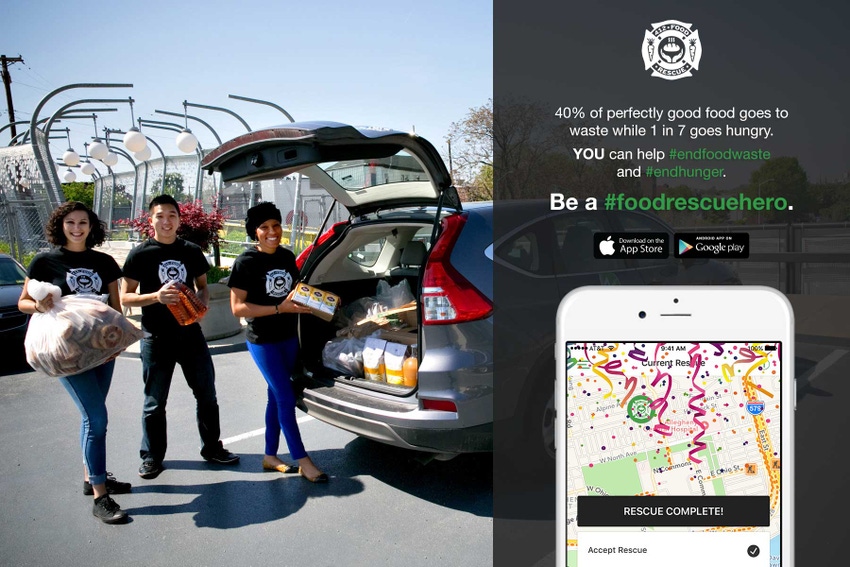Can crowdsourced food delivery and eyes in the back of the fridge reduce food waste?

One thing there’s no shortage of in the fresh food world is waste. Some 70 billion pounds of good food misses the mouth each year, according to FeedingAmerica.org, while food insecurity and hunger abound.
A recent profile on NPR's Here and Now traces a day in the life of Pittsburgh’s 412 Food Rescue. The organization’s app connects excess food with those in need, in real time, and cleverly employ’s an Uber-inspired approach to distribution: individual drivers as an on-call delivery network. This, in place of scheduled trucks, increases immediacy and likely decreases fuel and emissions.
The 412 Food Rescue is one of many organizations addressing this problem. (Here in Boulder, excess food is delivered by volunteer-powered bicycles.) We have our eyes on for-profit SpoilerAlert. The tech startup raised $2.5 million in development capital last fall and is creating technology to support nonprofits, distribution companies and even farms. This last piece, farms, is critical. The Food and Agriculture Organization of the U.N. estimates that the biggest waste pits exist on the far ends of the supply chain: the farm and the fridge. Thirty-eight percent of fruit and vegetable waste, the organization says, happens at picking and sorting, and 36 percent at home.
It's no wonder nonprofits are focusing on the middle of the chain—the 26 percent that’s wasted in storage, wholesale, production and retail. This, after all, is the stuff closest to the density of populations in need. Still, we’re glad to see SpoilerAlert taking on the farm part, at least in theory. They don’t get into the distribution game. As the match.com of lonely food, they’ll facilitate the introduction but they don’t schedule the date.
As for the consumer end, will smart fridges be the answer? Maybe. This UK startup believes a $150 gizmo can smarten up any old fridge, keep track of expiration dates and even recommend recipes based on what's on hand. No matter what, consumer awareness is a big component. First, in shifting attitudes about food beauty, next in simply being aware of what’s creeping it’s way to the back of the fridge.
About the Author(s)
You May Also Like




